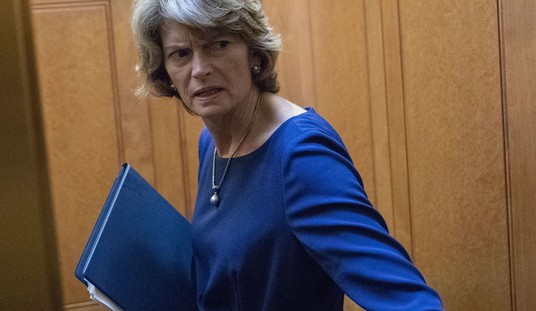MILWAUKEE – Sitting in the pressroom before Friday night’s televised debate between Governor Scott Walker (R) and Mayor Tom Barrett (D) the question was: will Tom Barrett do anything to change the momentum of the race? Since emerging from a divisive primary fight on May 8 that saw him trounce Big Labor’s candidate of choice, Kathleen Falk, Barrett has been working to shift the momentum of the race to his favor. Operatives on both sides agree that with almost no independent voters left to fight over, the election comes down to voter turnout and the margin of victory will likely be unpredictable and close.
Unconfirmed reports are that early voting in the Democrat-vote rich City of Milwaukee, Barrett’s home turf, total 3,300 due largely to coordinated efforts by labor groups and community organizing outfits.
Barrett has been hammered by revised job creation numbers showing Walker’s reforms are working, and the news that his politically active wife, a public school teacher, violated Milwaukee Public Schools policies prohibiting teachers from using their government email accounts for political and campaign purposes, He has been lagging in almost every poll in the race, and even his own internal polling, released without cross tabs to the public, shows him down but within the margin of error.
Out of the gate at the debate’s start, Barrett charged at Walker asserting it was the governor who started a “political civil war” in the state that led to the recall election. But for all of his aggressive tone and stance, Barrett did nothing to explain why his record as mayor of Wisconsin’s largest city shows he would lead the state in a better direction. Even while criticizing Walker for specific policy positions, Barrett was short on specifics.
Walker, never an outstanding or confrontational debater, stuck to his main theme of talking about how the reforms he championed are working. The state’s budget is balanced, property taxes slightly down, and job creation up. “[The] facts are the facts. Our reforms are working and putting people to work,” the governor declared.
The day before the debate, former SEIU head Andy Stern told POLITICO that the Democratic primary was “a key distraction,” that “reframed the issue into a more traditional electoral issue and not one of whether the governor deserves to be recalled.”
Barrett mentioned nary a word at the debate about what he would do to undo Walker’s collective bargaining reforms. Reforms that Barrett himself took advantage of to balance the City of Milwaukee’s budget this year. “This is about workers,” Barrett said, before vaguely asserting, “I am concerned about those [collective bargaining] rights.”
Arguably, Barrett’s most noteworthy comment of the entire evening was a pitch to voters that he was not labor’s “first choice.” At a time when national Democrats are refusing to pour money or star power into the race, it has been Big Labor money that has sustained the credibility of the recall effort. Attacking the financial life-line of his own side of the race was a bold, if undisciplined, move that may not resonate well with the progressive base buoying the recall movement.
Although aggressive in his personal style, Barrett did not play big during the debate. With little to lose it would have made sense for him to go all out on Walker using the debate as a chance to create fodder for a final round of television ads and reframe the narrative in his favor. But the lack of substance that characterized his answers, and the almost rote recitation of attacking talking points didn’t spark any moment that could have given more life to his campaign.
Walker did not need to play big, and seemed to be playing it safe the entire time. His campaign must believe that if he is ahead and building momentum, there is no reason to risk a debate misstep backfire. Barrett’s missed opportunity, however, could be something that further concedes a narrow lead to Walker’s favor.













Join the conversation as a VIP Member